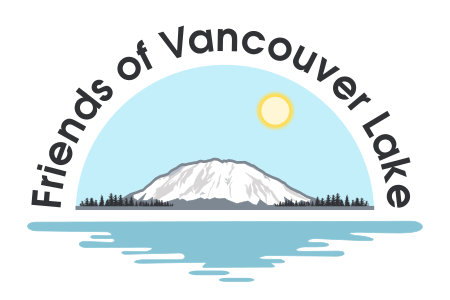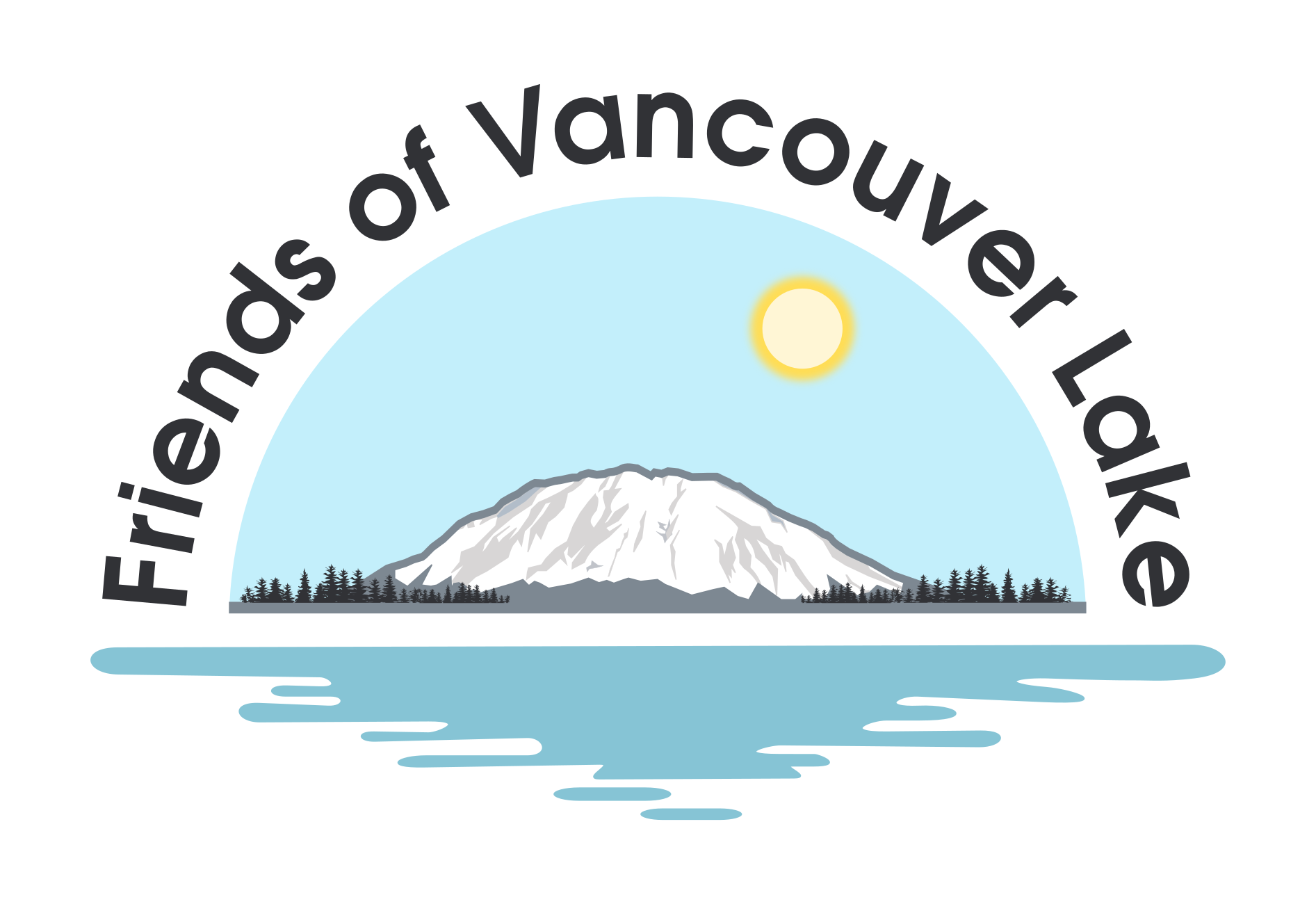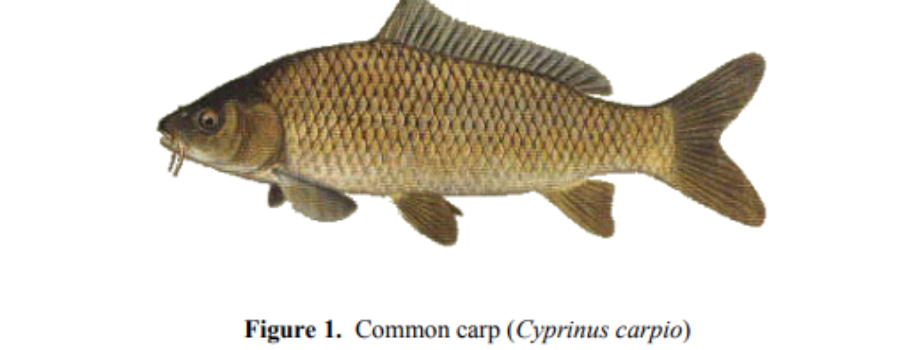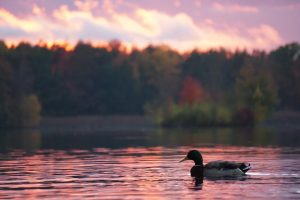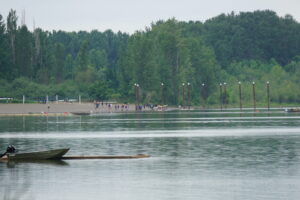What’s happening in 2021 regarding common carp in the lake:
In 2021, Friends of Vancouver Lake will contract with commercial fishermen to net common carp on Vancouver Lake. The effort is aimed at reducing the large population of common carp that impair water quality at the lake by stirring up lake bed sediments contributing to turbidity and harmful algae blooms. After reading about a state sponsored event last year at Moses Lake, Friends contacted Elliot DeLong of the Grant County Conservation District to learn more about the project. Success of the project at Moses Lake was reported here.
Many lake associations, management districts and state fisheries experts are working to help control common carp and mitigate their negative impact on water quality. We have read with interest of work in Ohio at Grand Lake St. Marys – a very unique body of water built – by hand – in 1845. It is 13,500 acres and was built as a canal feeder lake. Learn more here.
Information from a Grand Lake St. Marys study regarding common carp: Large populations of common carp can both directly and indirectly affect water quality, water clarity, aquatic habitat, and species richness (i.e. sport fish populations) within the lake system. Documented impacts to ecosystem processes fall into three categories;
- Nutrient Inputs – direct input and conversion of nutrients in the system through metabolic processes.
- Foraging Behavior and Bioturbation – alteration of habitat and ecosystem processes.
- Fish Assemblage and Diversity – domination of modified habitat and reduction of predation.
- Read more about the impacts & effects of Carp.
Background in Washington State
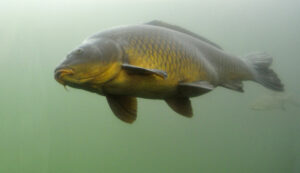 “According to Ben Hur Lampman in Coming of the Pond Fishes (published in 1946, and the basis for most historical information in this document), the earliest introduction of exotic fish in the Northwest was in 1880. In that year, a Troutdale, Oregon sea captain received from California a shipment of 35 “genuine German carp and perfect beauties.” These fish soon spawned in their Troutdale pond, and before the year was out the Captain estimated his increase at 7,000 carp. In late May of 1881, Mother Nature played a cruel trick. An unusually high spring freshet invaded the carp nursery, and several thousand “perfect beauties” escaped into the Columbia River. Within 12 years, the Oregonian newspaper reported that commercial fishermen were offering to supply carp as fertilizer in any quantity to farmers, for $5 a ton.” Learn more here!
“According to Ben Hur Lampman in Coming of the Pond Fishes (published in 1946, and the basis for most historical information in this document), the earliest introduction of exotic fish in the Northwest was in 1880. In that year, a Troutdale, Oregon sea captain received from California a shipment of 35 “genuine German carp and perfect beauties.” These fish soon spawned in their Troutdale pond, and before the year was out the Captain estimated his increase at 7,000 carp. In late May of 1881, Mother Nature played a cruel trick. An unusually high spring freshet invaded the carp nursery, and several thousand “perfect beauties” escaped into the Columbia River. Within 12 years, the Oregonian newspaper reported that commercial fishermen were offering to supply carp as fertilizer in any quantity to farmers, for $5 a ton.” Learn more here!
Impact of Introduction:
The common carp is regarded as a pest fish because of its widespread abundance and because of its tendency to destroy vegetation and increase water turbidity by dislodging plants and rooting around in the substrate, causing a deterioration of habitat for species requiring vegetation and clean water (Cole 1905; Cahoon 1953; Bellrichard 1996; Laird and Page 1996). Available literature indicates common carp may destroy aquatic macrophytes directly by uprooting or consuming the plants, or indirectly by increasing turbidity and thereby reducing light for photosynthesis. Bellrichard (1996) found that alterations in macrophyte biomass are due more to direct effects of common carp. In their review of the literature, Richardson et al. (1995) concluded that common carp has had noted adverse effects on biological systems including destruction of vegetated breeding habitats used by both fish and birds, and an increase in turbidity. It stirs up the bottom during feeding, resulting in increased siltation and turbidity (Lee et al. 1980 et seq.). This feeding behavior also destroys rooted aquatic plants that provide habitat for native fish species and food for waterfowl (Dentler 1993). Bonneau and Scarnecchia (2015) found that carp eradication and exclusion from reservoir tributaries allowed for increased benthic invertebrate community diversity and abundance, and the return of submerged aquatic vegetation.
Quad City Herald fishing report – Looking for fun cold weather outing? Consider carp
https://www.qcherald.com/outdoors/washington-outdoor-report-week-january-25
How to cook carp
https://tpwd.texas.gov/fishboat/fish/didyouknow/inland/carp_recipes.phtml
https://bonfirebob.com/how-to-cook-carp/
https://www.outdoorhub.com/how-to/2015/01/09/eat-invasive-7-simple-asian-carp-recipes/
Bait Recipes
https://www.carpfishinguk.org/fishing-baits/homemade-carp-bait-recipes-for-fishing-beginners/
American Carp Society
https://americancarpsociety.com/common-carp
General information about fishing at Vancouver Lake
https://wdfw.wa.gov/fishing/locations/lowland-lakes/vancouver-lake
